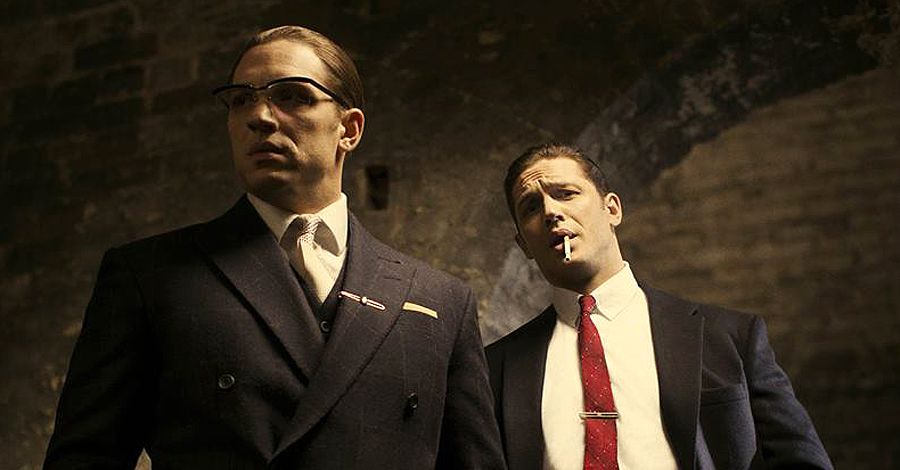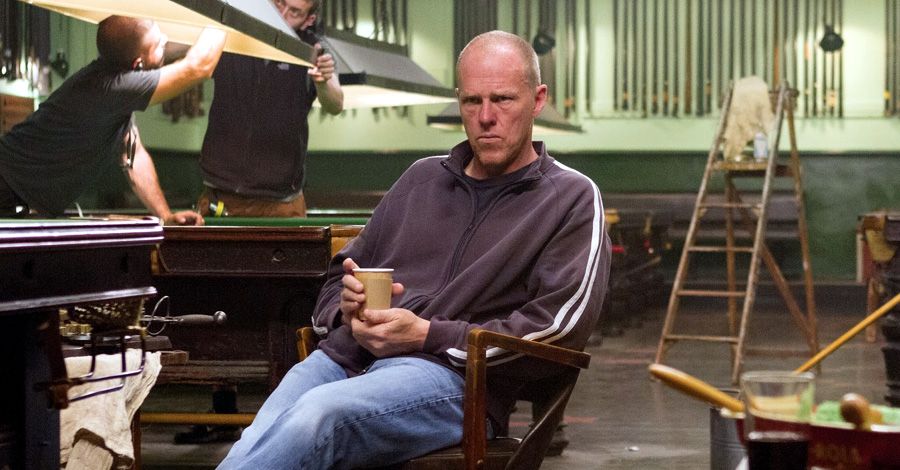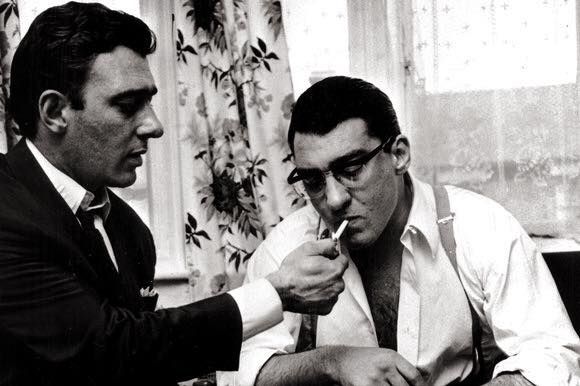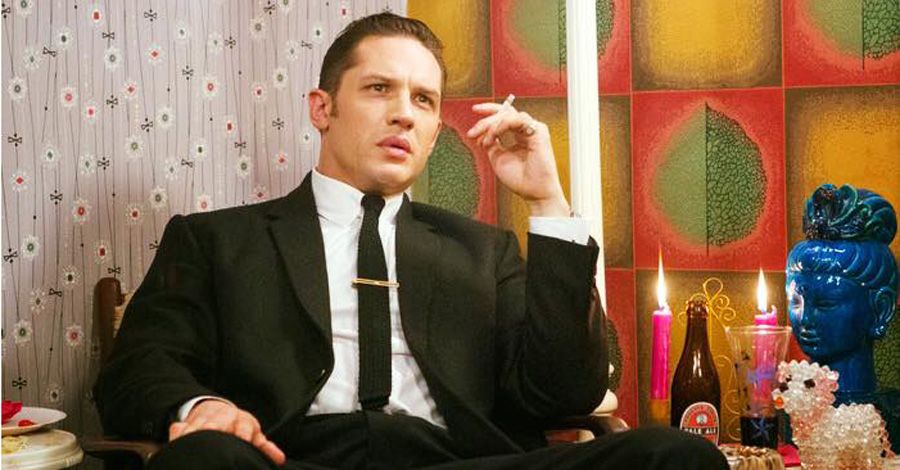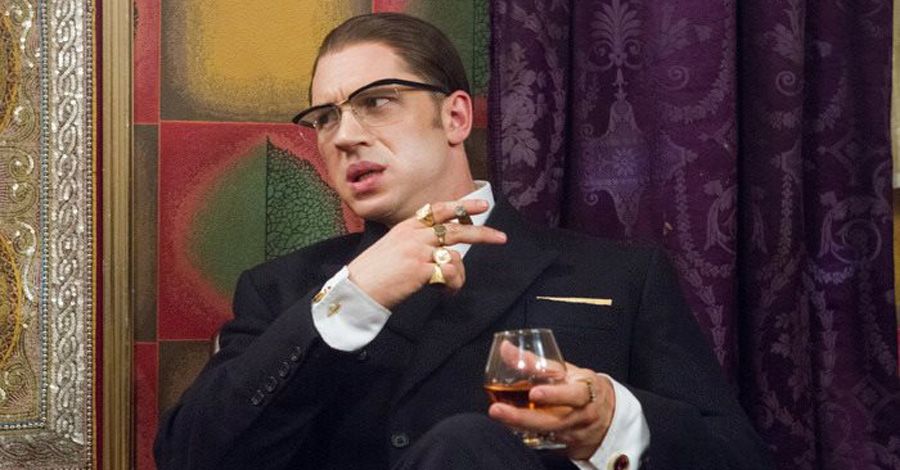Brian Helgeland's career as a screenwriter and director covers diverse territory, from his early work on "Nightmare on Elm Street 4" and "976-EVIL" to his period scripting Oscar-nominated films like "L.A. Confidential" and "Mystic River" to stepping behind the camera for "Payback" and "42.”
However, "Legend," the true story of the Krays, the charismatic twin gangsters who ruled the London underworld in the 1960s, may be his most complex achievement yet: The film attempts to reconcile the myths and legends surrounding the unorthodox brothers – Reggie, the cool, controlled and more competent, and Ron, the flamboyant, meds-ditching wild card, each deadly in his own way – with the reality of their criminal reign.
Helgeland also had to strike a bargain with leading man Tom Hardy, whom he coveted for the more "movie star" qualities of Reggie, while the actor prized the off-putting eccentricities of Ron. In the end, Hardy played both twins, which required a different directing approach depending on who the actor was portrayed in a given scene.
In conversation with SPINOFF, Helgeland reveals how he handled even more challenges, including recreating the Mod London backdrop, contending with peculiarities of the East End dialect, and finding the right balance between attraction and revulsion while telling an epic gangster tale.
Spinoff Online: What captured your imagination about the Krays and trying to bring this bizarre mythology – where much of it is hard to sort fact from fiction – to the screen?
Brian Helgeland: Well, that’s part of the attraction. First of all, what you described, that it’s so hard to … for guys who have only been dead 10 or 20 years, they’ve really entered into kind of a myth. I can tell you, because I did lots and lots of research, whether it be in books or watching documentaries or talking to people who knew them. You knew when the events of their lives happened. Like, you knew the night in history that Ron killed George Cornell at the Blind Beggar Pub, but there were 20 reasons given as to why he did it, which I found really kind of fascinating, infuriating, and all those things.
Also, I became interested in Francis, Reggie’s wife, who’s a very elusive character in the story, and very under-portrayed in a way. I found that to be very compelling. I think in my films, if you look at them, they all look like they’re all over the place as far as what they’re about. But I always thought the best ones were about identity and I found them very interesting. My perception was that Ron was very sure of who he was, and Reggie wasn’t; he could be whoever he needed to be. I found that very interesting also.
So I think it was really, I thought, they’re more compelling than anyone I could invent, in a way. But it was a slow process to finally realize that I wanted to do it. I agreed to come on and take it on if I felt there was enough there to do the commitment of time and effort and all that kind of thing. I was fascinated by them, but they grew on me as I actually found them to be more human. That’s not to forgive them, but I found them to be less monstrous and more human than I thought they were when I started.
One of the great things the movie has in common with other great movies in the gangster genre is that you’re alternately seduced and horrified by these characters. Was that on your mind, to keep treading that line as to just how charming and just how malevolent they could be?
Yeah, that’s definitely a goal. I think it’s fairly simple in that you have to tell the story without judging them in a way. When I say judge, I mean, really, you have to be with them. No matter what they’re doing. If they’re doing something reprehensible or they’re doing something – Reggie’s wooing his love, or whatever it is – you have to be with them. If you’re looking down on them, it doesn't work. And if you’re looking up to them, it doesn’t work. So I think it’s really just to be on ground level with them, no matter what they’re doing.
Two of my favorite films that you’ve worked on as a writer and as a director, “L.A. Confidential” and “42,” were set in period, in the mid-20th century, and I’m curious what lessons you learned from making those films that you were able to apply to making this one, which is also in period in a unique non-American location.
Yeah, I think it’s that the times change, but people are the same, really. Whatever’s going on at any given decade, so to speak, the 20th century, that can change. It can be the Vietnam War, or it can be World War II, or civil rights, or whatever it is. I think that the people, the motivations and the things that people get up to stay the same. The time and place becomes a crucible that you get to see everyone in their crisis, so to speak, which makes compelling characters.
In “L.A. Confidential,” it’s L.A. after the war, and the glitter of Hollywood against the reality of the city and all those things. “42” is after the war again, with the integration after the war being the huge issue. “Legend,” with London in the ‘60s and this time and place again, it’s very provocative and seminal. To dump characters into those kind of worlds, I think, makes for good cinema and good compelling characters.
You couldn’t have found a better leading man for both characters than Tom Hardy, and we get to see him do the two things he does best – one of which he often holds back from us, which is being that glamorous leading man as Reggie, and then he gets to play this very complex deep-in-character role as Ron.
Yeah. The funny thing is, he wanted to play Ron, and I wanted him to play Reggie. He shied away from Reggie because Reggie was more the straight movie star [role]. So we swapped, so he gave me Reggie and I gave him Ron. It’s what you said: I think he does a great job with Ron, and it’s this kind of tour de force. But we’ve seen him in that world, that Ron world before, with Bronson and Bane. But no one’s going to really go for it as far as Reggie goes, as far as the glamorous, almost James Bond kind of look to him. So that was a lot of fun to get that part of Tom up on screen.
Did you need to direct him in different ways when he was playing different Krays? Did you have to come up with different approaches to help him with his performances?
He needed to be directed in different ways, in a way. So, yeah, the answer is yes. The joke was always, and I never told Tom until we were all done, but the joke was, it was very easy to direct Ron. It was not difficult to direct Reg, but it was trickier to direct Reg. Ron would come to set and be the life of the party. He always had his arm around me. "What are we doing?" Whatever I said, he’d say, "Right. Let me go do it."
When he was Reggie, he was much more on the edge of the set, and watching, and very … not suspicious, but very kind of reserved, just distant. I’d tell him what we were doing and he’d want to know why. And we’d talk about it. It was just much more how you thought Reggie probably really was, and how Ron was when he was in a good mood.
What were some of the touchstone movies – or any other narrative really, in the gangster genre and otherwise -- that you had in mind while you were putting this together? Were there any reference points for you? Like, "If I could achieve something in that vein, I’m on the right track.”
Obviously, I’ve seen many gangster films and admire many of them, whether it’s Coppola or Scorsese, or even more kind of crime movies that aren’t gangster movies but more crime-oriented. In a way, I felt a little bit relieved that it was British, because I felt like that that would take me a little bit away, by comparison to the more Italian-oriented Mafia films.
At the same time, there’s a lot of music in it, which certainly is a Scorsese trademark. I didn’t want to feel like I was copying him. To me, it was London in the ‘60s. London in the ‘60s, one of the very first things anyone thinks about is the music. So I wanted to try to hopefully get it in there and have it stand on its own in a way. Certainly aware of it all. In a weird sort of way, knowing I was never going to be better than those films at all, but hoping that the movie could kind of stand on its own at the same time.
Was it a challenge to be as authentic as you could be to the Cockney dialect? I imagine that was challenging for everybody involved.
Yeah, very much so, hopefully without being too off-putting as far as an American audience trying to get into that rhythm -- which I think most people seem to take a few minutes to get into it. And once they get into it, they can kind of follow along. Yeah, as the writer, it’s your job, kind of -- it is your job to try to capture all of that, in a way, and also to not go overboard so that you become a caricature of that kind of dialogue. So that was really the line to walk.
It’s funny, because when Reggie Kray was in prison, after he had been in prison about 10 years, he started to try to sell his name a little bit. I think he was making money from people outside, family members and things like that. He’d put out a book called “Reggie Kray’s Guide to Slang.” It’s about 40 pages long; it’s full of criminal slang. He used to use London slang. So actually, that was very helpful in a weird sort of way.
What an awesome resource to have that.
Yeah, I didn’t give him screen credit, though! It was kind of funny, I’d always be sitting there with a block of dialogue, and I’d pick up his book and flip through it. About half the time, I’d find the word I was looking for.
“Legend” opens today in select U.S. theaters.

